Since 2012, STEW has been the unique meeting place where industry, academia, and the public sector come together to exchange knowledge, showcase results, and build collaborations in software technology.
At STEW, the focus is on two things: networking and knowledge exchange. The conference makes research and project results visible and accessible, sparking new collaborations and turning insights into real impact.
Theme of the year
“How to make Software Technology, AI, Modelling and Simulation available for industry to innovate”. Join us as we explore how cutting-edge technologies can be transformed into real innovation – in a forum where research meets practice.
Why attend?
Two days packed with inspiration, learning, and exchange
Build valuable connections across industry, academia, and the public sector
Discover the latest developments in software technology, AI, and simulation
Take part in shaping future needs and solutions
Registration fee:
1 000 SEK excl. VAT for speakers and PhD students
1 500 SEK excl. VAT for members
2 500 SEK excl. VAT for non-members
The registration is binding after the registration period has ended
Register now to secure your place at STEW 2025 – two days of inspiration, collaboration, and innovation that you don’t want to miss!
Link to registration: STEW 2025
Program
10.00 – 10.30: Coffee and registration
10.30 – 10.40: Welcome and practical information — Stefan Andersson & Stefan Frank, Swedsoft
10.40 – 12.00: Session 1: Learning and competence development
10.40 – 11.20: Keynote: AI and life long learning — Fredrik Heintz, Linköping University
11.20 – 11.40: Expert learning lab incl. pitch (Industry, Academia) — Lovisa Hultberg, Saab
11.40 – 12.00: Sponsorpitch
12.00 – 13.00: Lunch
13.00 – 14.30: Session 2: Software engineering in practice
13.00 – 13.20: Rolling in the Debt: From Technical Debt To Asset Management — Ehsan Zabardast, Blekinge Institute of Technology
13.20 – 13.40: Test automation is so much more than test cases — Torvald Mårtensson, Saab
13.40 – 14.00: State of practice of SBOM adoption in open-source projects from the EU CRA perspective — Oleksii Novikov, Blekinge Institute of Technology
14.00 – 14.20: Virtual Software Engineering in Automotive — Oscar Klintenberg, Volvo GTT
14.20 – 14.50: Coffee break
14.50 -16.50: Session 3: Software engineering and AI
14.50 – 15.30: Keynote: Recent Progress in Neural Program Repair — Martin Monperrus, KTH Royal Institute of Technology
15.30 – 15.50: How to Rewrite Six Million Lines of Delphi Code in Modern C# Using LLMs — Welf Löwe, Linneaus University
15.50 – 16.10: Ethical AI Alignment in Industrial Collaboration: A step towards a robust AI governance framework — Rushali Gupta, Lund University
16.10 – 16.30: Application of AI in Software Architecture Development at Volvo Construction Equipment — Nils Johansson, Volvo Construction Equipment
16.30 – 16.55: Discussions and take aways day 1
16.55 – 17.00: Closing of day 1
19.00 -: Conference dinner
8.30 – 9.00: Coffee and registration
9.00 – 9.10: Welcome and practical information — Stefan Andersson & Stefan Frank, Swedsoft
9.10 – 10.40: Session 4: Data driven methods and AI
9.10 – 9. 50: Keynote: Cross-Sector AI That Works: Sweden’s Playbook from the Data-Driven Organizations (DDO) Initiative — Kim Henriksson – AI Sweden
9.50 – 10.10: Vibe-engineering – AI Assisted Software Development — Mattias Tiger; Linköping University
10.10 – 10-30: Large Language Models for Processing and Searching through the Archives of a Major Criminal Investigation — Tibo Bruneel, Softwerk
10.30 – 10.50: From Data to Intelligent Agents: Saab’s Secure AI Journey — Stefan Strand, Saab
10.50 – 11.00: Coffee and fruit
11.00 – 12.30: Session 5: Modelling and Simulation
11.00 – 11.40: Keynote: What Industry is Doing with AI & What You Can Do Too — Azeem Ahmad, Ericsson
11.40 – 12.00: A Reasoning Framework for Architecting Carbon-aware Cloud Applications — Samuele Giussani, Linnaeus University
12.00 – 12.20: Towards Systematic Testing of COLREGS-Compliance for Autonomous Surface Vehicles — Daniel Varro, Linköping University
12.20 – 12.50: Discussion and takeaways day 2
12.50 – 13.00: Closing of day 2
13.00 – 14.00: Lunch
Keynotes
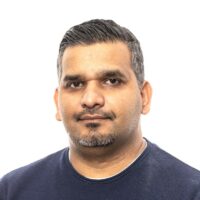
Azeem Ahmed
AI Technology Leader, Ericsson
Azeem Ahmad holds a Ph.D. in Software Engineering from Linköping University, Sweden. With a strong background in both academia and industry, including leadership roles at Ericsson, he drives innovation at the intersection of software engineering and AI/ML. An experienced researcher and mentor, he has led international collaborations, secured major grants, and contributed to open-source projects.
Title: What Industry is Doing with AI & What You Can Do Too
Abstract: We’re using AI to automate workflows, extract insights, and optimize operations across teams. But the most valuable use cases often come from those closest to the problem that is you. If you see inefficiencies, data patterns, or repetitive tasks, that’s your entry point into an AI journey.
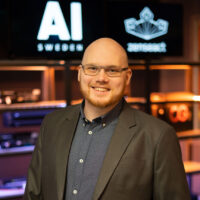
Kim Henriksson
Project Manager, AI Sweden
Kim leads AI Sweden’s national DDO initiative, where public agencies, companies, and universities co-develop practical ways to run AI in production. He focuses on pragmatic MLOps, governance, and sustainable infrastructure that reduce risk and time-to-value.
Title: Cross-Sector AI That Works: Sweden’s Playbook from the Data-Driven Organizations (DDO) Initiative
Abstract: Sweden’s AI advances fastest when academia, the public sector, and industry build together. This keynote condenses proven practices from DDO partners: assign clear ownership and promotion criteria for models; treat data, features, and models as versioned products; use software-enforced separation and auditability rather than multiplying clusters; and monitor for drift from day one. Illustrative outcomes include SAIL’s sustainable lifecycle approach, “soft borders” that enable compliant multi-tenant platforms, and operating thousands of models to support supply-chain decisions. The focus is on what demonstrably works—structures, runbooks, and habits that shorten the path from prototype to resilient production—so teams across Sweden can replicate results and share them back into the community.
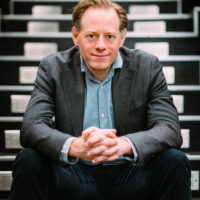
Fredrik Heintz
Professor of Computer Science, Linköping University
Fredrik Heintz is a Professor of Computer Science at Linköping University, where he leads the Division of Artificial Intelligence and Integrated Computer Systems (AIICS) and the Reasoning and Learning lab (ReaL). His research focus is artificial intelligence especially Trustworthy AI and the intersection between machine reasoning and machine learning. Director of the Wallenberg AI and Transformative Technologies Education Development Program (WASP-ED), Co-director of the Wallenberg AI, Autonomous Systems and Software Program (WASP), Coordinator of the TrustLLM project, and Vice President for AI Research Adra the AI, Data, and Robotics partnership. Member of the Swedish AI Commission. Fellow of the Royal Swedish Academy of Engineering Sciences (IVA).
Title: AI and life long learning
Abstract: AI development is fast. Especially generative AI has created a lot of excitement and is expected to have a major impact on our economy, society and not the least on education. This talk will explore the effects of AI on education and also work, especially software engineering. The talk will also present some of the work in the WASP-ED research program studying the transformative effect of AI on higher education and ADAPT where we study how higher education can change to better support life long learning.
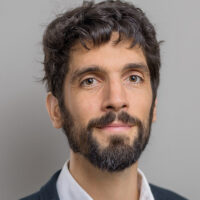
Martin Monperrus
Professor of Software Technology, Royal Institute of Technology
Martin Monperrus is Professor of Software Technology at KTH Royal Institute of Technology, in Stockholm (Sweden). His research lies in the field of software engineering with a focus on automatic program repair, AI on code and program hardening. He received a Ph.D. from the University of Rennes (France).
Title: Recent Progress in Neural Program Repair
Abstract: Neural Program Repair consists of producing software patches with neural networks and recently large language models. We will present an overview of our recent contributions in the space, highlighting the key challenges in designing representations, training networks and meaningfully evaluating effectiveness.
Speakers
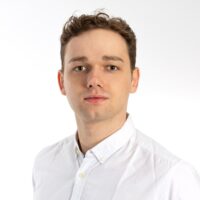
Tibo Bruneel
PhD studen, Linnaeus University
Tibo Bruneel is an industrial PhD student at Softwerk AB and DIA at the Linnaeus University in Växjö. His work focuses on combining machine learning and software development together for efficient training, integration, deployment, and usage of AI models in different kinds of industrial settings. Tibo has worked as a research consultant on all kinds of projects ranging from AI models for agricultural analysis and processing satellite data, to large pipelines of language models collaborating together for source code translation and searching archives.
Topic: Large Language Models for Processing and Searching through the Archives of a Major Criminal Investigation
Abstract: Criminal investigations produce millions of pages of documents, notes, transcripts, and media; far exceeding what humans can review efficiently. This talk presents a practical workflow that transforms raw archives of a major criminal investigation into a searchable knowledge base with large language models. Through this, we can allow investigators to find and reason about large data volumes, providing a better opportunity at finding answers to questions previously unanswered.
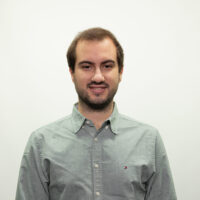
Samuele Giussani
Ph.D. student, Linnaeus University
Samuele Giussani is a Ph.D. student at the Department of Computer Science and Media Technology at Linnaeus University, Växjö, Sweden. He obtained his bachelor’s and master’s degrees in Computer Science Engineering at Politecnico di Milano, Italy, in 2018 and 2021, respectively. His research focuses on evaluating and optimizing the carbon impact of software systems, with a particular interest in Software-as-a-Service (SaaS) applications. Other research interests include data visualization techniques, model-driven engineering and self-adaptive systems.
Topic: A Reasoning Framework for Architecting Carbon-aware Software-as-a-Service Applications
Abstract: Software-as-a-Service solutions are increasingly being adopted when developing software applications, as they are scalable, cost-effective, and facilitate rapid deployment while providing high availability and flexibility. However, the impact of Software-as-a-Service in terms of carbon emissions is not yet adequately addressed as a design concern, and most of the existing efforts revolve around measuring and containing the carbon impact after the deployment. Our work proposes a model-driven reasoning framework that integrates UML-based software architecture modeling with carbon-aware concerns. Architectural elements are supplemented with sustainability and performance properties of interest through a dedicated Domain Specific Language; then, a model-driven transformation generates a simulation model to evaluate multiple architectural designs according to their Software Carbon Intensity and performance metrics. The results guide decision-making by assessing and comparing the trade-offs between performance and carbon intensity for the analyzed designs. In this way, the reasoning framework provides an automated, tool-supported approach to designing environmentally responsible Software-as-a-Service applications.

Rushali Gupta
PhD student, Lund University
Rushali is a second year PhD student at Lund University, Department of Computer Science, ( Software Engineering Research Group- SERG). Her research project is about designing and exploring AI systems software testing framework and to work towards ethical AI alignment. Her research aims to contribute towards development of building robust and safe AI systems. Rushali has more than six years of industrial experience, with some hands on experience in conversational AI, including both voice bots and chat bots. She is now eager to continue on this AI journey for exploration on software testing about ethical AI alignment.
Topic: Ethical AI Alignment in Industrial Collaboration: A step towards a robust AI governance framework
Abstract: As artificial intelligence (AI) systems become integral to industrial operations—from autonomous logistics to real-time decision-support in manufacturing—the need for ethical alignment is more pressing than ever. Ensuring that AI systems operate in accordance with human values, safety standards, and regulatory expectations is critical for maintaining stakeholder trust, reducing compliance risks, and enabling responsible innovation. Our research involves understanding the AI-associated alignment risks, governance models, organizational policies for testing and monitoring, elicitation for quality requirements, gathering insights via industrial interviews, and proposing a continuous operational testing framework.

Lovisa Hultberg
Project Manage, Saab
Lovisa Hultberg has been a Project Manager at Saab for ELL since 2024, with a long-standing background in the company. Previously held leadership roles in the development and production of Gripen and T7, combining strong technical expertise with extensive leadership experience.
Topic: Expert Learning Lab
Abstract: Expert Learning Lab (ELL) is a cooperation project between Swedish industry and academia with the mission to strengthen Sweden’s competitiveness through lifelong learning for technical experts. ELL offers Learning Journeys that combine practical training and cross-organizational collaboration in areas such as AI, Energy Optimization, Cyber Security, and Technical Leadership.
Through these programs, experts are able to both deepen and broaden their skills in close alignment with real industrial needs. In addition, ELL runs Communities of Practice, where experts share knowledge, build networks, and co-create the digital solutions of the future.
ELL is therefore more than a training platform, it is an innovation arena that transforms advanced digitalization into concrete expertise and increased competitiveness for Sweden.

Nils Johansson
Ph.D student, Volvo Construction Equipment
Nils Johansson works as an industrial Ph.D student in Software Engineering at Volvo Construction Equipment in Braås, with a focus on Software Architecture. His ongoing work concerns how to apply AI in the software architecture development process.
Topic: Application of AI in Software Architecture Development at Volvo Construction Equipment
Abstract: As software systems grow in complexity, traditional development approaches struggle to keep pace with demands for scalability, agility, and efficiency. In this landscape, software architecture plays a critical role in ensuring system quality and long-term adaptability. Yet, architectural work remains challenging ranging from interpreting evolving requirements to supporting design decisions and preserving knowledge across distributed teams. To address these challenges, Artificial Intelligence is increasingly explored as a means to augment and transform the way software architecture is practiced. At Volvo Construction Equipment, ongoing work investigates how AI can support and enhance various aspects of architectural development. By automating labour-intensive activities, improving decision support, and strengthening consistency and traceability, AI has the potential to act as a co-pilot in the architectural process. This work-in-progress aims to share early experiences and insights on applying AI in industrial settings, contributing to the broader discourse on integrating AI into software development and, in particular, software architecture practice.
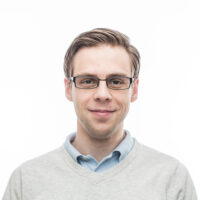
Ulf Kargén
Assistant professor, Linköping University
Ulf Kargén is an assistant professor at Linköping University, Sweden. He received his PhD in computer science on the topic of binary-code analysis in 2019. His research interests lie within the areas of software and system security and software testing. He has authored several highly-cited works on security testing and program analysis, and is currently engaged in research projects within cybersecurity and safety testing of autonomous vehicles. He has over 10 years of experience teaching university courses in cybersecurity and speaking at academic conferences.
Topic: Towards Systematic Testing of COLREGS-Compliance for Autonomous Surface Vehicles
Abstract: Autonomous surface vehicles (ASVs) must complete missions without posing risks to other maritime traffic. Safe traffic is controlled by the International Regulations for Preventing Collisions at Sea (COLREGS) formulated by the International Maritime Organization (IMO). The COLREGS specify the correct maneuvers in critical encounters where two vessels within visibility distance are on a course that will eventually lead to collision. Systematic testing of ASV behavior such scenarios is critical to ensure safe deployment of ASVs. In this talk, I will present our model-based test generation approach which automatically derives initial scenes for complex sea encounters involving multiple vessels, using a multi-step refinement approach. First, a diverse set of functional equivalence classes is derived automatically. Then, we provide a mapping from functional equivalence classes to logical scenarios that capture geometrical constraints between potentially unsafe ship encounters. Finally, initial scenes with precise vessel placements are generated from logical scenarios by (1) a search-based algorithm and (2) a novel rejection sampling-based algorithm. Our evaluation shows that our approach derives a diverse set of initial scenes of relevant test scenarios with high efficiency, even for six-vessel encounters.
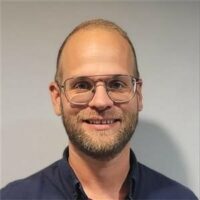
Oscar Klintenberg
Global technology manager , Volvo GTT
Oscar Klintenberg is the global technology manager for product simulation at Volvo Group’s Vehicle Software Factory, where he leads initiatives to enhance system simulation capabilities for use in software development. With over 17 years at Volvo Group, Oscar has held various strategic roles, including Strategy & Operational Excellence Manager for Safe & Efficient Driving and Vehicle Motion & Energy Management. His expertise includes predictive energy management, and powertrain control. Oscar has an M.Sc. in Mechatronics from Chalmers University of Technology in Gothenburg.
Topic: Virtual Software Engineering in Automotive

Welf Löwe
Professor of Computer Science, Linnaeus University
Welf Löwe is Professor of Computer Science at Linnaeus University and a tech entrepreneur, co-founder of Softwerk, DueDive, AIMO, and PetsVetCheck. He studied Computer Science in Dresden, earned his PhD in Karlsruhe, and conducted research in Berkeley. Since 2002, he has been professor at Linnaeus University, leading the research center Data Intensive Sciences and Applications and the industry graduate school Data Intensive Applications. His work bridges AI, software technology, and innovation for industry.
Topic: How to Rewrite Six Million Lines of Delphi Code in Modern C# Using LLMs
Abstract: We present an engineering approach for leveraging large language models (LLMs) in automatic code translation, applied in an ongoing project with Danfoss Power Solutions aimed at translating and modernizing six million lines of Delphi code into C#. We describe the architecture of the translation pipeline, including results from preparatory studies that informed its design. As the project is approaching its halfway point, we share insights from its execution to date, highlighting encountered obstacles as well as preliminary statistics on performance and cost savings.
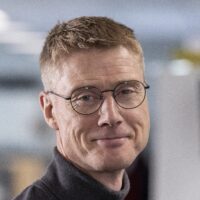
Torvald Mårtensson
Technical Fellow within System Integration Testing, Saab Aeronautics
Torvald Mårtensson is Technical Fellow within System Integration Testing at Saab Aeronautics. He has a background of twenty years in the aeronautics industry and another eight years in the telecom industry. At Saab, Torvald works with test management for functions and systems in the Gripen E fighter aircraft, as well as design and implementation of test environments and simulators. Torvald is also Associate Professor of Software Engineering (Senior Lecturer) at Linköping University, and is an Associate Editor of the Journal of Systems and Software. He is a full member of The Royal Aeronautical Society in London. His research has primarily revolved around systems integration and system testing of large-scale and complex software systems, based on studies with multinational companies in industry segments such as telecom, defence, logistics, surveillance and automotive.
Topic: Test automation is so much more than test cases
Abstract: While software-developing organizations increasingly write test cases and continuously run them to find defects and ensure quality, the associated costs increase over time. Based on experiences from six large-scale companies, this talk will explain how more test cases is not the solution, which calls for other methods and tools such as sanitizers, multi-component testing or mutation testing that can complement traditional test cases. As every tool is also a cost for the organization, we need a structured and holistic approach, where methods and tools are evaluated and selected from four categories, representing test activities with different purposes: Optimize feedback loops, Improve test efficiency, Improve test suite effectiveness, and Technical debt management. Feedback from automated test activities in the continuous integration and delivery pipeline must be understandable (describing what the problem is), actionable (describing what the developer needs to do), and explained (describing and motivating why this is important). This talk provides actionable strategies for how automated testing of units and components can be conducted in a more structured way, which could help companies cut costs, save time and identify problems earlier.
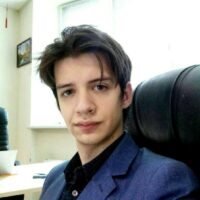
Oleksii Novikov
PHD Student, Blekinge Institute of Technology
Oleksii Novikov has over 4 years of experience in the industrial cybersecurity field. He is pursuing a PhD in Software Engineering at Blekinge Institute of Technology (BTH), focusing on the study of the EU Cyber Resilience Act and its potential impact on European software companies, as well as developing a pipeline for easier compliance with it.
Topic: State of practice of SBOM adoption in open-source projects from the EU CRA perspective
Abstract: With the upcoming EU Cyber-Resilience Act (CRA), every product, including software, must undergo security certification. One key aspect of CRA is that vendors must provide a Software Bill of Materials (SBOM), a catalog of every component that goes into their product. In this talk, I will share our findings regarding the current state of SBOM usage across popular open-source projects. I show that only a very small percentage of them use SBOM. I will also give an overview of the state of SBOM files from the perspective of vulnerability and licensing management. Finally, I will describe the adoption of SBOM in different software ecosystems. This talk is aimed at researchers and practitioners interested in the discussion around SBOM in preparation for the EU CRA 2027 deadline.
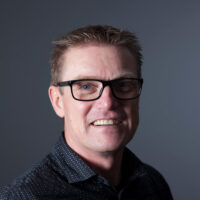
Stefan Strand
Leader of the Center of Excellence Data & AI , Saab Group
Stefan Strand is the Leader of the Center of Excellence Data & AI at Saab Group, driving innovation and secure, data-driven solutions. He holds a Master’s in Engineering Physics, complemented by further studies in innovation, AI, and analytics, and brings over 25 years of experience in data, AI, cloud, and enterprise architecture. Stefan was recently named to the 2024 Hyperight Nordic 100 in Data, Analytics & AI list. Outside of work, he co-built an experimental classified motor glider approved for full aerobatics with three friends and served as one of its test pilots. He is also a drone pilot with a clear vision of a flying future.
Topic: From Data to Intelligent Agents: Saab’s Secure AI Journey
Abstract: Step inside Saab’s AI revolution. We’ll take you on a fast-paced journey from building powerful Lakehouse and data science foundations (SARA), to unleashing generative AI (SAGA), and now orchestrating autonomous, agentic platforms that fuse LLMs, RAG, and MCPs – all within the strictest security frameworks. See how we scaled GPU power, trained our people, and turned bold ideas into reality, featuring real use cases.
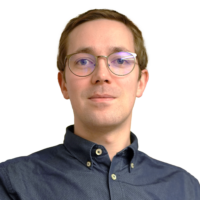
Mattias Tiger
Assistant Professor , Linköping University
Mattias Tiger is a Assistant Professor at Linköping University where he (also) is deputy lab leader for the Reasoning and Learning Lab (ReaL), led by Fredrik Heintz. His research lies in the field of AI with a focus on trustworthy, effective, and deployable AI and Machine Learning, while supporting public and private sector implementation of Autonomous Systems and Decision Support Systems. Mattias has experience in AI research where he over the past decade, have lead and participated in a wide variety of AI projects in both the private and public sector.
Topic: Vibe-engineering – AI Assisted Software Development
Abstract:While vibe-coding has exploded this year, the impact of non-technical vibe-codes has so far been limited. The real transformation is happening among people who already know how to build software: developers, advanced students, and researchers who are now dramatically more empowered. From conversations across industry channels, tech communities, and research collaborations, it is clear that leading companies are finding ways to make AI-assisted development central to their workflows. Yet, most people still do not know how to use AI properly for software development. In this talk, I will share common issues and blockers that arise when coding with AI, highlight recurring patterns and emerging best practices for overcoming them, and reflect on why these strategies work—drawing on both hands-on experience in tools like Cursor and an intuition for how large language models actually “think.” The aim is to connect the current hype around vibe-engineering with the deeper, sustainable practices that can make AI-assisted software development a long-term paradigm shift.
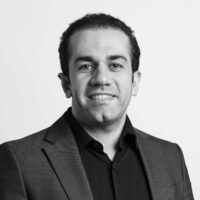
Dr. Ehsan Zabardast
Adjunct assistant professor, Blekinge Institute of Technology
Dr. Ehsan Zabardast is an adjunct assistant professor in empirical software engineering at the Blekinge Institute of Technology. His research interests include software assets, asset management and degradation, developer ownership and contribution, technical debt, and software architecture. He has received his Ph.D. in Software Engineering from Blekinge Institute of Technology.
Topic: Rolling in the Debt: From Technical Debt To Asset Management
Abstract: Today, almost every organisation is dependent on software. Software brings a competitive advantage by creating value streams. However, developing software-intensive products and services has many challenges as the software grows and evolves. These challenges are elevated due to the fast pace of change in the software landscape. Organisations aspire to create the most value while reducing waste. In order to maximise value, organisations need to maintain and manage their software assets. Asset management is the administration of assets and the activities that are related to creating and maintaining assets as well as controlling their quality. Asset management considers the explicit control of assets throughout their life-cycle with a particular focus on the assets’ degradation and ‘‘emendation’’, the conscious removal of degradation. This talk will explore the concepts related to asset management and degradation, its relation to technical debt, and the way forward.


